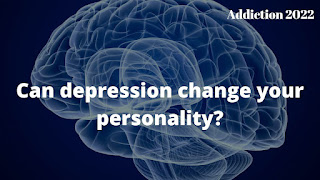Can Depression change your Personality?
Depression (major depressive disorder) is a typical and significant health condition that has a negative impact on quality of life, think, and behave. It is also, thankfully, curable. Depression generates sadness and/or the loss of interest in previously appreciated activities. It can cause plenty of mental and physical difficulties, as well as a decrease in your capability to function at work and at home.
Understand the connection between personality and depression has consequences for explaining aetiology and comorbidity, detecting at-risk people, and customising therapy. We go through seven primary theories that have been presented to explain the link between personality and depression, as well as crucial methodological issues such qualitative research, mood disorder heterogeneity, and personality evaluation.
The extensive empirical literature on the role of personality traits in depression in children and adults is then reviewed selectively. Additionally, personality traits appear to have a role in the initiation and progression of depression via a number of mechanisms. The consequences for prevention and treatment response prediction, as well as particular considerations for future research on the relationship between personality and depression, are highlighted.
Depression is a severe condition for which therapy is provided. The great majority of people with depression will be capable of overcoming it with proper diagnosis and therapy. If you're having depression symptoms, the very first thing you need to do is consult your family doctor or a psychiatrist. Explain your worries and ask for a comprehensive review. This is a fine place to begin when it comes to dealing with your mental health issues. A full diagnostic examination, including an interview and a physical examination, should be conducted by a health professional prior to a diagnosis or therapy. A blood test may be required in some conditions to ensure that the depression is not caused by a medical disease including a thyroid problem or a vitamin deficit. With the purpose of arriving at a diagnosis and determining a course of action, the evaluation will identify specific complaints and explore family's medical histories, as well as cultural and ecological aspects.

.png)
.png)
Comments
Post a Comment